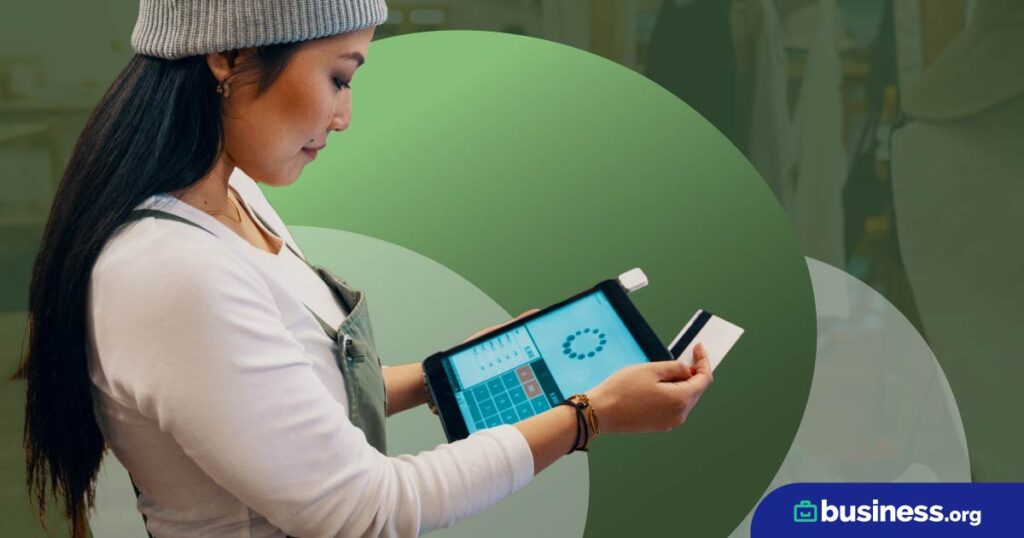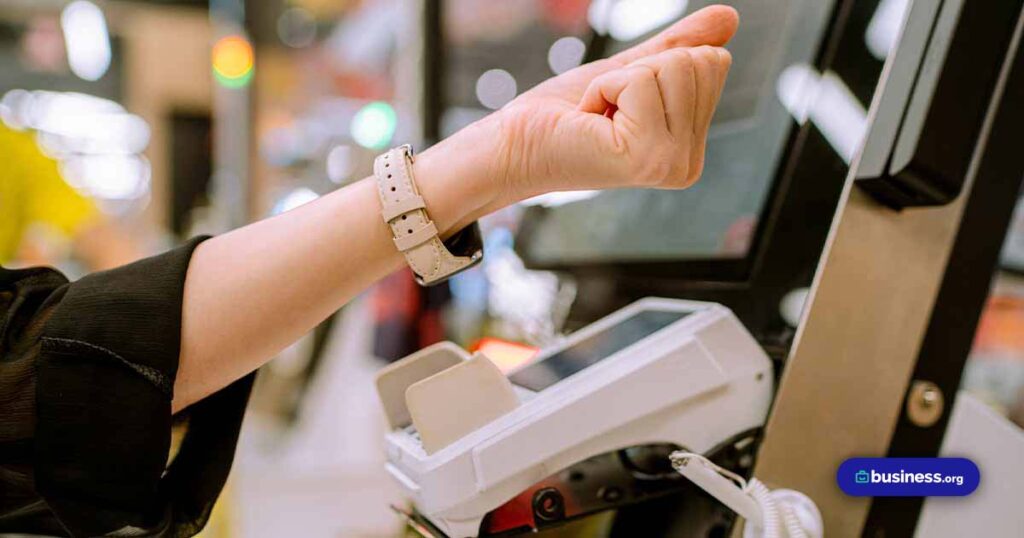We are committed to sharing unbiased reviews. Some of the links on our site are from our partners who compensate us. Read our editorial guidelines and advertising disclosure.
What is a POS Report?
Every day, your business’s point of sale (POS) system gathers lots of sales data about your customers. By understanding a POS report and how this sales data can be used, you can get better insights into how your business works, and help drive bigger sales results for your business.
Let’s take a closer look at the purpose, benefits, and uses of POS reports.
POS Report Table of contents
What is a POS report?
A POS report is a detailed collection and readout of sales data from your point-of-sale (POS) system. Today’s POS systems are able to quickly and easily gather sales data such as total sales, transactions, credit card sales, employee hours, and more.
A good POS report can help business owners identify trends in their business, such as peak seasons or busiest days of the week. The sales data in a POS report can help you make better informed business decisions, such as when to buy inventory, when to increase staffing levels, and which products are selling fastest.
What features should it include?
POS systems have gotten more advanced in recent years. They no longer serve as just a cash register or a credit card swiping device; your POS system should serve as the central dashboard and sales database that gives you visibility into your business.
A good POS report should include several types of business data, features, and details.
By signing up I agree to the Terms of Use and Privacy Policy.
Sales Reports
Sales are the lifeblood of your business, and having better visibility of your sales data will help you make better-informed decisions about what to sell and how to market your products. POS reports should include various types of sales data, including:
- Best-selling items
- Lowest-selling items
- Sales data by employee, product, and department
- Sales for each menu item
- Returned items (see which items get returned most often)
- Online sales
- Mobile sales
- Gross profits by week, month, etc.
Payment Reports
Good POS reports should also help you track money going out of your business in the form of payments to vendors and contractors, refunds, and other outgoing payments. This can help you track your business’s cash flow, prevent employee errors and thefts, avoid excessive discounts, and help your business run more efficiently.
Payment reports should include details such as:
- Payments made by the business (including company credit cards, check, mobile payments, etc.)
- Taxes paid by the business
- Discounts and refunds (make sure you’re not losing too much money due to dissatisfied customers or returns)
- Employee payouts, tips and gratuities (for example, if you run a restaurant where servers get paid partially in tips and end-of-shift payouts)
- Voided sales
Employee reports
Your POS report should show you detailed sales data at the employee level, so you can get a better sense of which employees are creating the most value for your business, and which might need additional support or training.
The best POS systems might include these types of employee sales data in the POS report:
- Hours worked by each employee/time clocks
- Sales, commissions, and profitability per employee
- Shift reports
- Employee till counts
Some POS systems might also include employee scheduling and payroll in the POS reports, but this is not always to be expected.
Inventory reports
POS systems can also help you manage inventory and keep track of your available items on shelves and in storage. The most effective POS reports can help you get better visibility of your inventory in several ways:
- Getting the total value of your inventory
- Seeing which items are running low and deciding when to restock
- Generating raw ingredient reports (for restaurants)
- Tracking your inventory in real time
- Getting reports on dead stock and out-of-stock items
- Seeing expected vs. actual stock (this can help you avoid losses due to shrinkage or theft)
POS reports can help your inventory management be more efficient, helping you save money, avoid losses, and maximize the selling power of your available stock.
Customer reports
Some POS systems also offer advanced customer relationship management tools and features, which help you understand your customers better. By viewing sales data that is specific to each customer, you can get in-depth insights into how to better serve your customers and generate bigger sales in the future.
Here are a few features and insights from customer sales data that a good POS report should help provide:
- Top customers by sales volume. Who are your best customers, and how can you reward them better with loyalty programs?
- Repeat customers. Which customers keep coming back to buy from you, and what do they purchase?
- Total sales by customer. See which customers are bringing the most money to your business.
- Customer purchase and return histories. Are some customers returning too many items? Are some products especially popular with certain types of customers?
- Sortable customer profiles. See the details about who your customers are.
- Abandoned cart emails and lost sales. Understanding this sales data can help you get better at closing the deal with online purchases.
Good POS reports can help you know your customers on a deeper level. They can help you create targeted marketing campaigns to reach more customers from those same buyer profiles and market segments. Understanding your sales data can also help you generate more revenue from repeat sales, cross-selling, up-selling, and other strategies to get your best customers to keep buying.
Most programs easily integrate with other systems, which enhances collaboration and increases productivity. By having a CMS that easily integrates with other systems, it can enhance division of labor and specialization in organizations because it allows individuals to complete tasks they are most familiar with. This, in turn, can increase an organization’s revenue.
Does the typical small-business owner need to create a POS report?
Every small-business owner who sells products, has inventory and employees, and conducts many transactions with customers each day should create a POS report. And you don’t have to do it alone.
If your business has a POS system, you might already have automatic POS reports built-in to your POS system. Today’s POS systems have great dashboards and sales data tools to make it easier to create POS reports.
Knowing more about what a POS report is and how these reports can help your business will hopefully motivate more small-business owners to be more proactive at looking up their latest sales data. Without a POS report, you might be flying blind and missing out on valuable insights about how your business is operating, where you’re losing money, and where you’re missing out on opportunities for bigger revenue and future growth.

Square is the best free point-of-sale system on the market. From invoicing to inventory tracking, Square gives you all the features you need to boost your POS experience.
What else should a small-business owner know about POS reports?
First, POS reports don’t have to be complicated or expensive. In fact, some of the best POS systems are free for small businesses that have fewer users and need limited features.
Also, keep in mind that not every business needs the same types of POS reports. If you run a restaurant, the sales data that you want to see might be different from an ecommerce business or a specialty retailer. Choose a POS system that works for your business, and then you can get more specific about the types of POS reports you need.
POS report FAQ
Some popular, recognizable POS systems that you might have heard of include Square, Shopify, Intuit QuickBooks, Revel, and Lightspeed.
Related read: EPOS Systems: What Are They and How Do They Work?
It depends on the POS system that you use. Most POS systems should provide you with an easy-to-use central dashboard for your business, which pulls together all of your sales data and shows you analytics and insights all in one place. Look for menus that say “Reporting” or “Data Analytics.” Or if you can’t find what you need to make a POS report, check out the FAQ for your POS system and contact customer support for more details.
A point-of-sale (POS) system is the central point of contact for customers to buy from your business. But instead of an old-fashioned cash register, today’s POS systems are digital, enabling online sales as well as in-person transactions.
The best POS systems today do more than just swipe credit cards and process payments; they give the business owner visibility into the valuable sales data that is collected every day from every customer interaction.
POS systems can be simple or more robust, depending on the size of your business and how many transactions you need to handle. Some small businesses might be fine with using a simple mobile credit card reader. Larger businesses might need more advanced hardware for brick-and-mortar retail space, with more sophisticated online tools for ecommerce.
As your business grows, your POS system might need to evolve along with your growing needs. Be prepared to switch to a new POS system or invest in additional POS hardware to keep accommodating your business’s level of customer demand.
Sometimes as a consumer, you’ll see the word “POS” on your bank statement or credit card bill; this is an abbreviation for “point of sale,” and it means that the transaction was made via point of sale (POS) system at a merchant’s place of business (or online).
The takeaway
If your business is not using POS reports, you are missing out on opportunities. POS reports can help your business by showing you your sales data, giving you deeper insights into customers, identifying key business trends, avoiding errors, theft and shrinkage, maximizing your inventory, and helping to make better-informed decisions about every part of your business, from staffing levels to out-of-stock items.
POS reports are not just about numbers, they’re about visualizing the total picture of your business and making better business decisions along the way.
Would you like to learn more about POS providers and find the right POS system for your needs? Please check out our picks for the best POS systems for small businesses.
Related content
Disclaimer
At Business.org, our research is meant to offer general product and service recommendations. We don't guarantee that our suggestions will work best for each individual or business, so consider your unique needs when choosing products and services.




